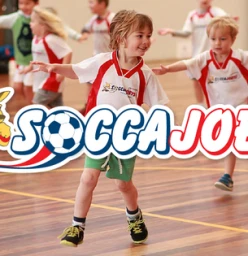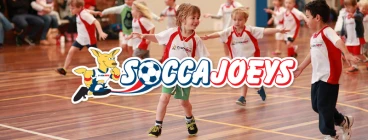Fitness Associations for Kids - Stirling (5152)
Adelaide Hills, the Adelaide Region, South Australia (SA)
No exact matches found within 5km.
Other related businesses in and around Stirling (within 20km)
We are a private family-owned business, that has a focus on a great Learn to Swim program designed for children and Adults aged 4 months and over. Our brand new indoor facility, has a mineral pool with amazing water quality for sensitive eyes and skin, in a nurturing, peaceful environment. The constant 32 degrees ensures that swimming can take place all year round in a warm, beautiful aquatic setting here in the Adelaide Hills. Our values are respect, team work, a strong customer focus, inclusion... Read more
- 159 Sir Donald Bradman Drive, Hilton, SA 5033
- 10-20 km from Stirling
Diabetes SA has been delivering services to people with diabetes and their families since 1953. As a not-for-profit, member based Association that is largely self-funded, our mission is to educate, advocate, support and fund research that provides better outcomes for people at risk or living with diabetes. Diabetes SA vision is to empower people to live well with diabetes and raise awareness for those at risk of diabetes in South Australia. Read more
We are Adelaide's specialists in Kids, Family & Teens Yoga! Classes for kids from 3-17yrs & their parents. We offer after-school kids & family classes in Norwood & mobile Yoga in Schools, Kindys, Libraries & Vacation Care programs (where we come to you!). Or maybe you'd be interested in our KIDS YOGA TEACHER TRAINING..? We'd love to have you! Come try a class & find out why we are Adelaide leaders in Kids, Teens & Family Yoga. NORWOOD CLASS TIMETABLE (booking essential) KIDS YOGA (5/6-12YRS)... Read more
- 5 The Mall, Aberfoyle Park, SA 5159
- 10-20 km from Stirling
Dance classes for all ages in Jazz, Tap, Hip Hop, Contemporary, Ballet, Lyrical, Cheerleading and Acrobatics. Classes available just for fun or performance teams. Professional training available for those wishing to pursue a career in Dance and performing arts. Special pre school classes available from 2 years. Established for 30 years with 11 professional staff we cater to all your dance needs. The studio is located in the Hub shopping complex and we have a fully stocked Dance wear store in our... Read more
- 2/1 Sleaford Rd, Windsor Gardens, SA 5087
- 10-20 km from Stirling
CrossFit Proficient is the local CrossFit gym in Windsor Gardens, Adelaide. Our specialty is not specializing and our goal is constant progress. Read more
Quality teaching for recreational and pre vocational students 3yrs to adult : Ballet, Contemporary, limber, pilates for children and adults. Established 1983. Mirrored , airconditioned studios at 6 Walker St Mt Barker. Read more
Featured Listing - Silver
Featured Listing - Silver
Soccajoeys is Australia's leading soccer program for boys and girls aged 2.5 to 11 years. Soccajoeys programs are aimed at introducing kids to the early learning principles of soccer along with increasing their physical and social development. Junior soccer enthusiasts experience this soccer program in an indoor environment, using toddler safe equipment whilst being facilitated by licensed professionals. Our Coaches at Soccajoeys Adelaide show genuine care and passionate interest for the children... Read more
- 114 Tolley Road, St Agnes, SA
- 10-20 km from Stirling
- Business can travel to you
Junior football Association playing AFL football. Ages U6 to U16's. Based in the North Eastern suburbs of Adelaide. Over 5,500 players and 260 teams. Read more
- 16 Stadbroke road, Newton, SA
- 10-20 km from Stirling
- Business can travel to you
Adelaide Tang Soo Do has been established since 1998. Our studio is one of the finest schools teaching quality Korean Martial Arts. Our unique approach develops: confidence, health & fitness and self protection. Classes for all ages Kindy kids 4 - 6 years, Junior beginners, adult beginners. Our healthy environment has been created for people looking for fitness whilst achieving their personal goals. Read more
Lose weight with nutrition that fits your lifestyle Create an abundance of energy that lasts all day Get stronger and leaner body with minimal training I'm Holly Thomas and my goal is to give YOU practical tools to supercharge your energy, get unshakable confidence, and heal stubborn health issues. You work hard and the last thing you need is burnout, depression, anxiety, physical pains or other pesky health problems rearing their ugly heads. The solution is hidden within the SOURCE of... Read more
- 63 Malbeck Drive, Reynella East, SA 5161
- 10-20 km from Stirling
Ohana Fitness run boot-camps for beginners through to advanced fitness levels. Personal Training is also available for quicker and more personalised results. SERVICES AVAILABLE: * Boot-camps running Sunday mornings from 9.00 - 10:00am * 1 on 1 Personal Training Sessions * Group Training (For groups of 2 or more people) * Sports Specific Training & Sports Clubs/Team Training * Children's Sports Training, Birthday Parties & Boot-camps We like to make fitness fun for everyone, no matter... Read more
- 73 Koonga Ave, Rostrevor, SA 5073
- 10-20 km from Stirling
Gymnastics Lessons for all Primary School aged children. Starting around 3.5 years of age. Monday and Thursday evening in the Stradbroke School Gymnasium. Read more
- 80A Unley Rd, Unley, SA 5061
- 10-20 km from Stirling
Satori Women's Health Club is a gym for ladies who like to feel safe when exercising. At any time of the day. Our gym is fun, relaxed and non-intimidating, with professional personal trainers to help you along. We are here to ‘bring balance to life’ helping Women to find their best wellness. We are open around the clock for members. So pop in whenever you feel the need to have a workout. We’re a women only gym and provide a creche to make it safe and convenient. From our website check out all... Read more
- 417 Gilles St, Adelaide City Centre, SA 5000
- 10-20 km from Stirling
- Business can travel to you
- 583 Anzac Highway, Glenelg North, SA 5045
- 10-20 km from Stirling
EFM Health Clubs Glenelg is a gym facility where both men and women can achieve their personal health and fitness goals. In addition to providing a large array of equipment for use during personal workouts, EFM Health Clubs Glenelg also offers group training sessions and fitness classes. Read more
- 528 Brighton Rd, Brighton, SA 5048
- 10-20 km from Stirling
We offer a welcoming and friendly environment, inspiring you to create positive lifestyle changes to achieve your fitness goals. Renowned for our relaxed and friendly atmosphere, you will feel part of our community and find exercising with us fun. We have fantastic facilities which include - Dual access with 24 Hrs @ Paragon Fitness, Body Bikes the Ultimate Indoor Cycling experience, Extensive Group Fitness timetable with State of the Art Instructors, Awesome New Functional Training Zone, Fit Over... Read more
- 63 Lower Portrush Rd, Marden, SA 5070
- 10-20 km from Stirling
We offer a non-judgemental, non-intimidating atmosphere where you can become fitter, healthier and happier. As one of the largest 24 hour gyms Adelaide has on offer, we understand that for too many people the biggest challenge is to actually walk through the doors of a health club for the first time. Read more






























